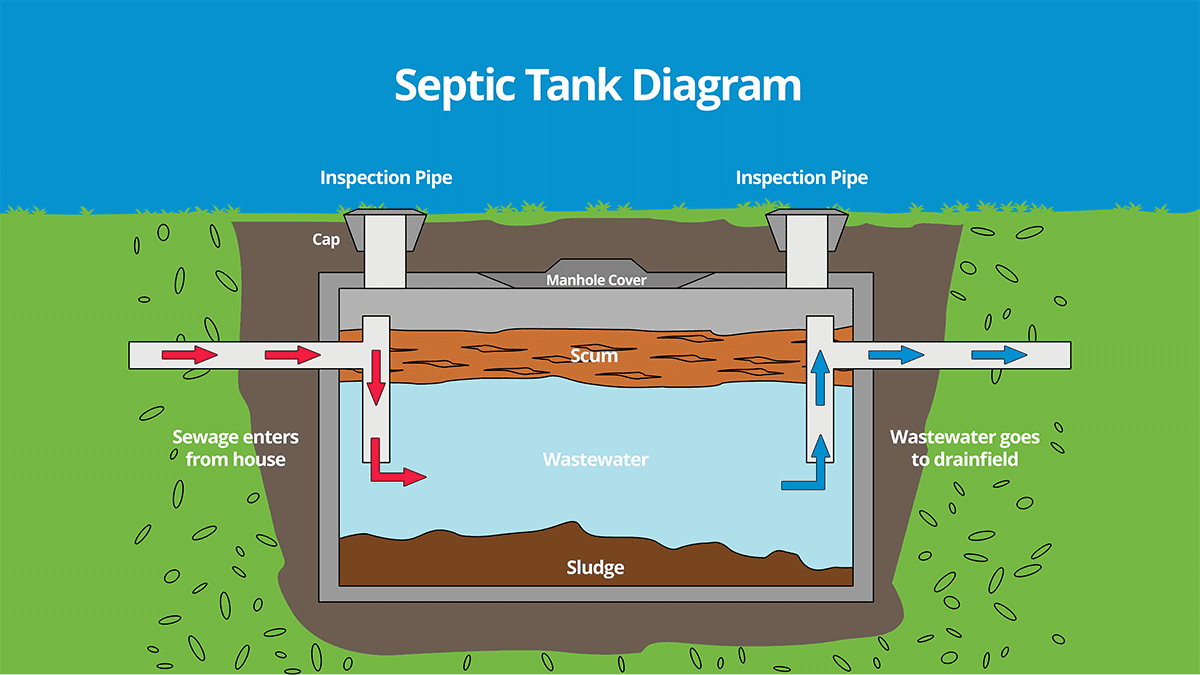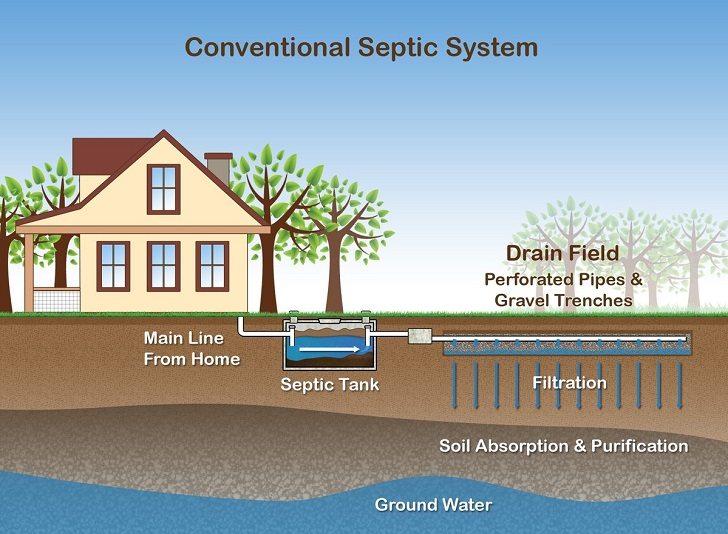
How Far Should a Septic Tank Be From the House?
When I bought my first house, I was excited to finally have a place of my own. One of the first things I had to do was get the septic tank inspected. I had no idea how far a septic tank should be from the house, so I called a professional. He told me that the distance between the septic tank and the house should be at least 10 feet. This is to prevent the wastewater from the septic tank from contaminating the groundwater that supplies the house with drinking water.
The distance between the septic tank and the house is just one of the many things that you need to consider when choosing a septic tank system. Another important factor is the size of the tank. The size of the tank will depend on the number of people living in the house and the amount of wastewater produced. A tank that is too small will not be able to handle the amount of wastewater and will overflow, contaminating the groundwater.
Location of the Septic Tank
The septic tank should be located in an area that is not prone to flooding. It should also be located in a place where it will not be disturbed by construction or excavation. The tank should be buried at least 18 inches below the surface of the ground to prevent it from freezing in the winter.
The septic tank should be located at least 10 feet from the house, 5 feet from any property line, and 100 feet from any well or water source. The tank should also be located in an area that is accessible for maintenance and pumping.
Size of the Septic Tank
The size of the septic tank will depend on the number of people living in the house and the amount of wastewater produced. A tank that is too small will not be able to handle the amount of wastewater and will overflow, contaminating the groundwater. A tank that is too large will be more expensive to install and maintain.
The size of the septic tank is typically determined by the local health department. The health department will take into account the number of people living in the house, the amount of wastewater produced, and the soil conditions in the area where the tank is to be installed.
Maintenance of the Septic Tank
The septic tank should be pumped every 3 to 5 years. This will help to remove the sludge that accumulates in the tank and prevent it from clogging. The tank should also be inspected regularly for leaks or other problems.
If you have any problems with your septic tank, you should call a professional. A septic tank that is not properly maintained can contaminate the groundwater and pose a health hazard.
Tips and Expert Advice
Here are some tips and expert advice for choosing and maintaining a septic tank:
- Choose the right size septic tank for your needs.
- Locate the tank in an area that is not prone to flooding or construction.
- Have the tank inspected regularly and pumped every 3 to 5 years.
- Do not put grease, oil, or other harmful substances down the drain.
- Conserve water to reduce the amount of wastewater produced.
By following these tips, you can help to keep your septic tank working properly and protect your groundwater from contamination.
FAQ
Q: What is a septic tank?
A: A septic tank is an underground chamber that holds wastewater from a house. The wastewater is treated in the tank and then released into the soil.
Q: How big should a septic tank be?
A: The size of the septic tank will depend on the number of people living in the house and the amount of wastewater produced. A tank that is too small will not be able to handle the amount of wastewater and will overflow, contaminating the groundwater.
Q: How often should a septic tank be pumped?
A: A septic tank should be pumped every 3 to 5 years. This will help to remove the sludge that accumulates in the tank and prevent it from clogging.
Q: What are some signs that a septic tank needs to be pumped?
A: Some signs that a septic tank needs to be pumped include slow drainage, gurgling sounds in the pipes, and foul odors. If you notice any of these signs, you should call a professional to have the tank inspected and pumped.
Conclusion
Septic tanks are an important part of many homes. They provide a safe and effective way to treat wastewater and protect the groundwater from contamination. By following the tips and advice in this article, you can help to ensure that your septic tank works properly and lasts for many years.
Are you interested in learning more about septic tanks? If so, please leave a comment below. I would be happy to answer any questions you have.

Image: deavita.net

Image: www.primagem.org
How Far Should Drain Field Be From Septic Tank – Best Drain Photos … Jan 3, 2024So, how far should a septic tank be from a house? According to industry standards and local building codes, a septic tank should be positioned at least 10 feet away from the house. This distance ensures that any potential leaks or odor problems do not affect the household. Moreover, it allows for easy access and maintenance of the septic tank